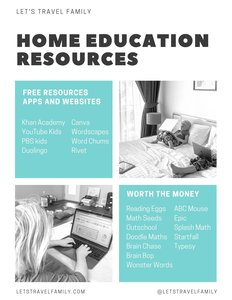Your kids are home, and you didn’t want to or weren’t prepared to homeschool–and that’s okay. Or, you plan to travel full-time and you’ve never homeschooled before, these are the home education resources you need to know.
If you’re feeling lost, and want a place to find homeschool education resources to help provide some ideas on what YOU can do with your kids while homeschooling, then I hope this resource page will help you out.
Our traveling family has been homeschooling our kiddos for over 8 years, and while it hasn’t always been easy, it has been a big adventure. With the abundant amount of resources available to us homeschoolers, the sky’s the limit.
Home Education Resources
If you want to see my recommended list of apps, books, and curriculums then you can skip down a bit. Or if you’d like a little insight into seeing if homeschooling is right for you, the different approaches to online homeschooling, online learning programs, homeschooling laws, and some additional tips on how to homeschool while telecommuting, then keep on reading.
THIS ARTICLE MAY CONTAIN COMPENSATED LINKS. PLEASE READ OUR DISCLAIMER FOR MORE INFO. THIS POST WAS WRITTEN BY JILL GREISING-MURSCHEL, A FAMILY TRAVEL AND RV LIVING EXPERT.
Is Homeschooling For Me
It really depends on how you look at homeschooling. If it wasn’t a choice, and your kids are made to stay home from school because of the way the world was in 2020, then you may look at homeschooling as a tough pill to swallow.
That’s completely understandable, as this wasn’t your choice. That’s why I wanted to create this resource page to help you navigate through some of the options you have to help your kids continue to learn, keep busy, and hopefully put a smile on everyone’s face during this stressful time.
Now, if you are CHOOSING to homeschool, then what an exciting time this must be for you. Well, exciting and a bit unnerving too.
My first piece of advice to you is to read this book or this book about what homeschooling is. Then, join a few homeschooling Facebook groups or local homeschool groups and meet other homeschooling families.
Know that you will most likely change the way you homeschool several times over the years. You might even sign your kids up for school again.
And that’s okay! That’s what parenting is, making the best choices you can for your family each day.
Circumstances change, needs and desires change, and as a parent, you have to learn to shift with them.
Different Ways To Homeschool
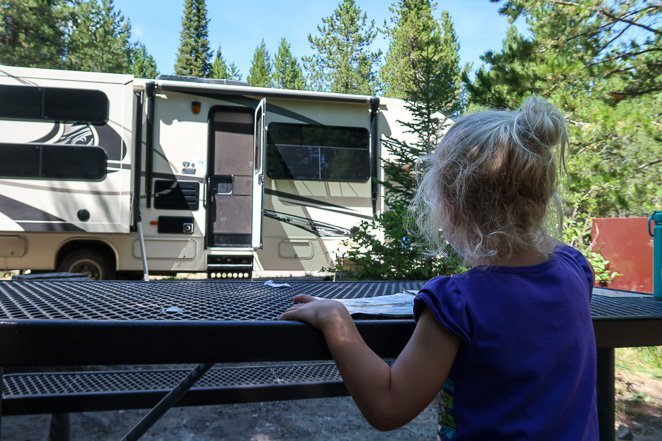
There are several approaches to homeschooling. So many, that it can get a bit overwhelming.
I’m going to list the most common ways that families homeschool and share a few things about each, including some book recommendations, to help you get started.
Eclectic Homeschooling School At HomeOnline SchoolUnschoolingClassical HomeschoolingCharlotte Mason ApproachWaldorf HomeschoolingMontessori Homeschool
Eclectic Homeschooling
Eclectic homeschooling is the most common way of homeschooling out there. It includes a little of this, a little of that. It’s piecing together your homeschooling with many resources.
This is the approach that our family has used almost our entire time of homeschooling.
School At Home
This form of homeschooling or world schooling is what you often see in the media in photos. It usually involves a child working on a very specific curriculum with a set schedule at home.
Be warned, this is a form of homeschooling that has the highest burnout rate. It can be very stressful for families as the children resist it so much and often can cause parenting struggles.
Online School
Many homeschooling families would say that signing your kids up for an online school means that you don’t homeschool. Yet, I think it needs to be included here because your child is home, and learning.
There are many online public school and a few private online schools that require the internet and a computer for your child to learn from.
Here is a brief list: K12.com Connections AcademyLaural Spring School – PrivateMy friend Caz with ytravelblog signed her kids up for Laural Spring School this year and they love it. You can read all about her family’s story here.
Unschooling
This form of homeschooling is known as interest-led learning. Here’s a great TED-talk by a 13-year-old child who was unschooled that gives you a great look into unschooling. This is a great book to read to learn more about Unschooling
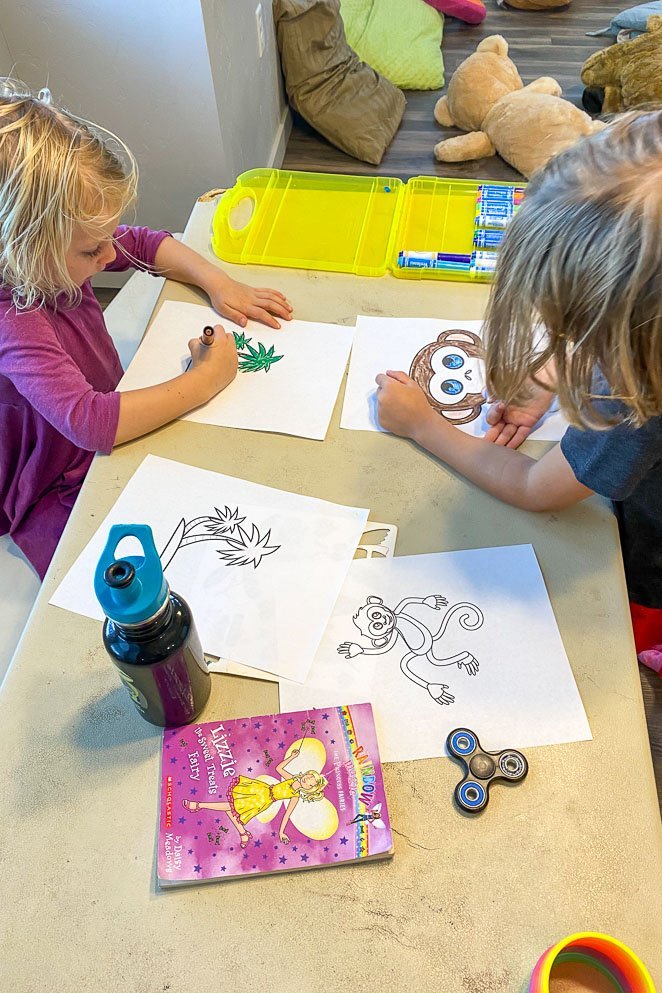
Classical Homeschooling
This form of homeschooling follows Jessie Wise’s book A Well Trained Mind in helping your children learn how to learn. They use five tools to help children learn how to learn for themselves: Trivium, Reason, Record, Research, Relate and Rhetoric.
Charlotte Mason Homeschooling
This approach to homeschooling looks at children as not just people needing to be filled with knowledge, but people in their own right deserving of respect. Families using this approach will have their kids in real-life situations to learn. This is a great book to dive into this approach.
Waldorf Homeschooling
The Waldorf approach to homeschooling is based on Rudolf Steiner’s work and stresses the importance of whole-child-learning including body, mind, and spirit. In the early years, children are often focused a lot on nature walks, arts and crafts, and music.
They often discourage the use of computers and TVs as they believe screens are bad for a child’s learning. Here’s a good book to understand the Waldorf approach.
Montessori Homeschooling
The Montessori approach emphasizes ‘errorless learning’ and encourages children to learn at their own pace. This approach encourages keeping learning materials well organized and reducing clutter while also preferring wooden toys over plastic.
This approach also discourages the use of computers and TV. Here’s a good book to learn more about this method.
Worldschooling – Roadschooling
This is a form of homeschooling that is much like Eclectic but is often used when families are traveling. They may take a year to travel the world together and find that the children learn so much just by traveling. Or, they may be an RV family traveling around the US.
You can read more about our choice to worldschool our kids several years ago here.
Which Method Is Right For Me?
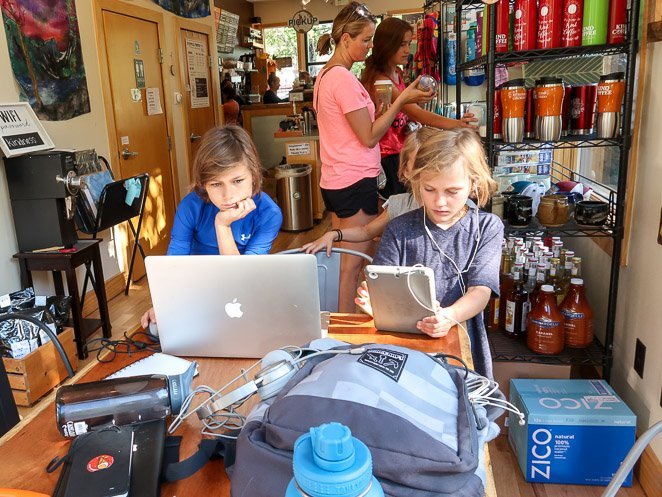
Honestly, whichever you feel you’re ready to commit to. The only way to do this is to jump right in. I recommend trying to read up on some of the approaches that resonate with you and while you’re at it.
Honestly, your kids will learn so much by just being kids. Pretend play, reading books with Mom and Dad, helping make a meal, grocery shopping, doing laundry, and so much else. Use each moment as a time for learning.
There are many more skills that children will benefit from other than typical: reading, writing, math, science, history lessons etc.
Children learn independence, confidence, creativity, great communication skills, logic, reasoning, and so much more by just playing.
So, my suggestion to YOU is this. Whether you are homeschooling by choice, or it’s forced on you, start out by giving your kids a little bit of time to just BE.
Let them play, give them free time, have them help with basic household chores, and if you are okay with a little screen-time, then check out my list down below with some great educational apps that you could just allow the kids to dabble in to get started.
First, before I dive into the apps and homeschooling resources, I want to touch on how to work from home and homeschool at the same time.
How To Homeschool While Telecommuting
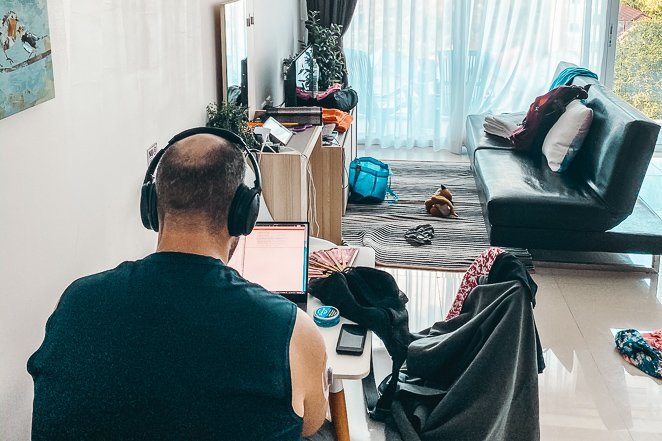
If you work from home and your kids are home with you, either by choice or because of other reasons, then I want to share a few tips with you here.
You see, Tony and I both ‘work from home’, or from our RV, or from an Airbnb….depending on our travel schedule, while we’ve homeschooled our children. It doesn’t have to be as challenging as you think. Here are a few tips to bring your stress levels down.
First, if you have the budget, get these noise canceling headphones. They have made a HUGE difference over the last year for Tony when working from home with the kids around.
Ditch The Traditional Schedule
Try to let go of the ‘traditional schedule’. I’m not saying don’t have a schedule of any kind in your home. Keeping a morning wake up routine and bedroom routine, for example, can benefit everyone in the family.
What I mean here is for you to try to think outside of the box.
Can you wake up early to work for a few hours before the kids wake up?
Can you and your partner take turns with deep diving into work tasks while the other makes lunch?
Or, can you do homeschooling in the evenings and allow the kids to play with toys and play educational apps during the workday?
There are many ways you can make this work for your family if you can just allow your schedule to be flexible.
Do What Works Now
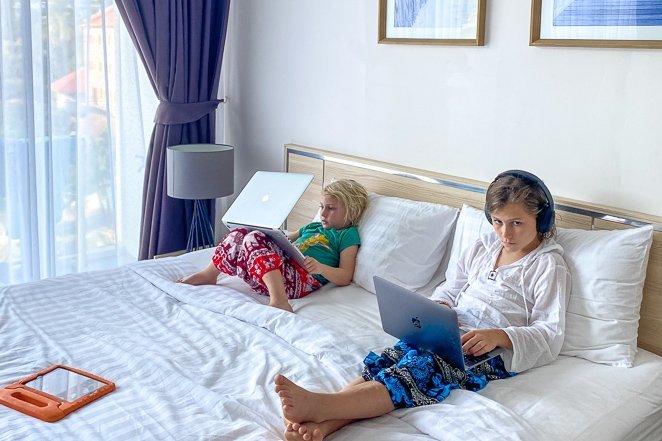
What you do this month for homeschooling and working, doesn’t have to be the same next month. Try something for a while and know that you can always shift to something different if it doesn’t work for your family. Download free craft ideas such as printable Valentine’s Day cards one month, then go on field trips the next month.
Utilize Your Online Resources
There are SO many incredible online resources where your children can learn, without you needing to sit over their shoulder at all times. Some are free like listening to some of the best podcasts for kids at home, while several have a monthly subscription, but you can usually start out on a trial-period to make sure it’s right for you.
Read below to see the best homeschool curriculum resources and ideas.
Home Education Resources And Apps
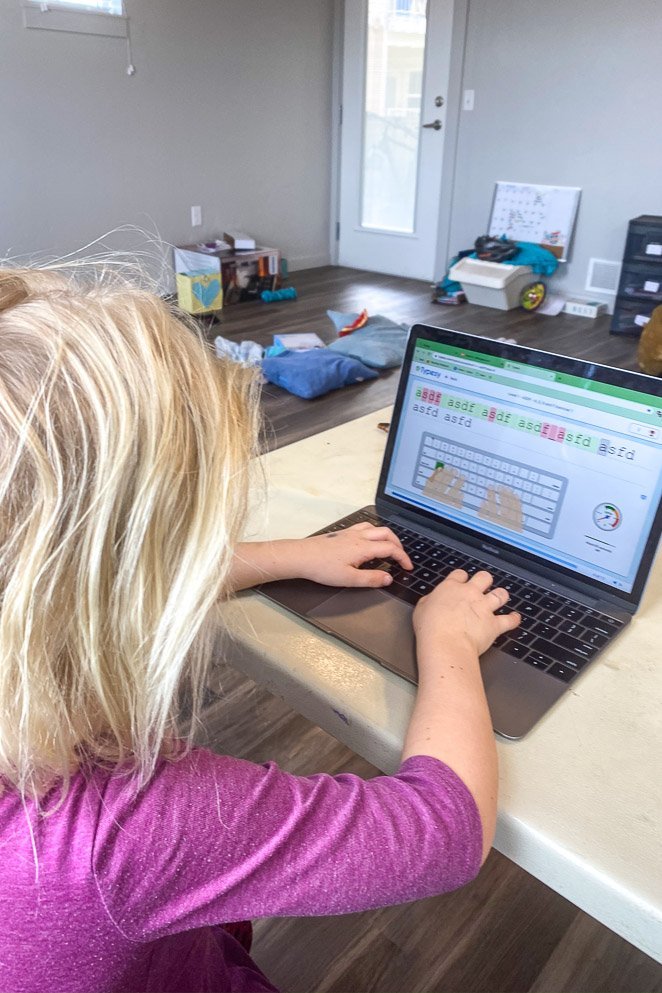
Jasmine using Typesy Online
Here is a huge list of our favorite home education resources and apps that you can check out. Some are specific to a computer, some to a tablet, but many work on both types of devices.
Khan Academy – free online learning resource.
Khan Academy Kids app – for younger kids, this one is great on tablets.
Reading Eggs – subscription reading program for 2-8-year-olds. It also includes Math Seeds.
Math Seeds – subscription to math online homeschool program.
Epic – Kids’ books and videos ‘read to me’ we LOVE this app.
Outschool: online courses taught by real people, sign up for what you want.
Doodle Maths – monthly math subscription, works on tablets and computers
Doodle English – monthly subscription
Brain Chase – think escape room, reading, math, education, and entertainment. Membership is $19 per month but looks really cool.
Brain Bop – offering a FREE subscription if your child’s school is closed due to the Coronavirus
PBS kids – fun online games and videos.
Typesy – an online curriculum for keyboarding and typing. We love ours. One-time payment for 4 at-home accounts.
ABC Mouse – A very popular and great reading/education resource for younger kids. 2-8-year-olds with a membership model.
Wonster Words – a fun app for tablets that we use for reading.
Duolingo – free second language app
YouTube Kids – you can choose which videos they can watch, for free.
Canva – create art and print it to color in later.
Wordscapes – fun word game.
Splash Math – app on tablets that we’ve used with our homeschool kids.
Starfall – fun learning for young kids on a computer or tablet and great for 2-8 year olds. One-time yearly fee for the full game, we love it.
Word Chums – you can play with the family online back and forth from different tablets.
Popular Curriculums
Logic of English – Reading curriculum created by a speech therapist.
Horizons Curriculum – Christian-based curriculum with math, spelling, phonics, and penmanship.
Sonlight – Christian homeschool curriculum.
Teaching Textbooks – math curriculum that is online, no books needed. I love it and it works well for ages 8 and up.
Story of the World – an amazing history curriculum that is story-based. There are 4 Volumes. I’d start with Volume 1 – Ancient Times. You could also get the workbook that goes along with it here. Or, if you don’t think you’ll have the time or ability to read the book out loud to your child, then they have the entire book on Audiobook here.
We own all 4 volumes of the Story of The World and all 4 audiobook sets and honestly, the kids really like it. We’ve listened to it in the car, at the dinner table, or just in the RV while we were all doing our own thing. It’s crazy how much kiddos pick up on an audiobook playing in the background.
Your Homeschooling Journey
As I finish up with this long post, I want you to think of different ways that you can make homeschooling fun. For both you and your children.
Being able to spend this time with your kids can be pretty incredible, and as you work hard to find the joy in this journey, you’ll be able to bring smiles to everyone at home.
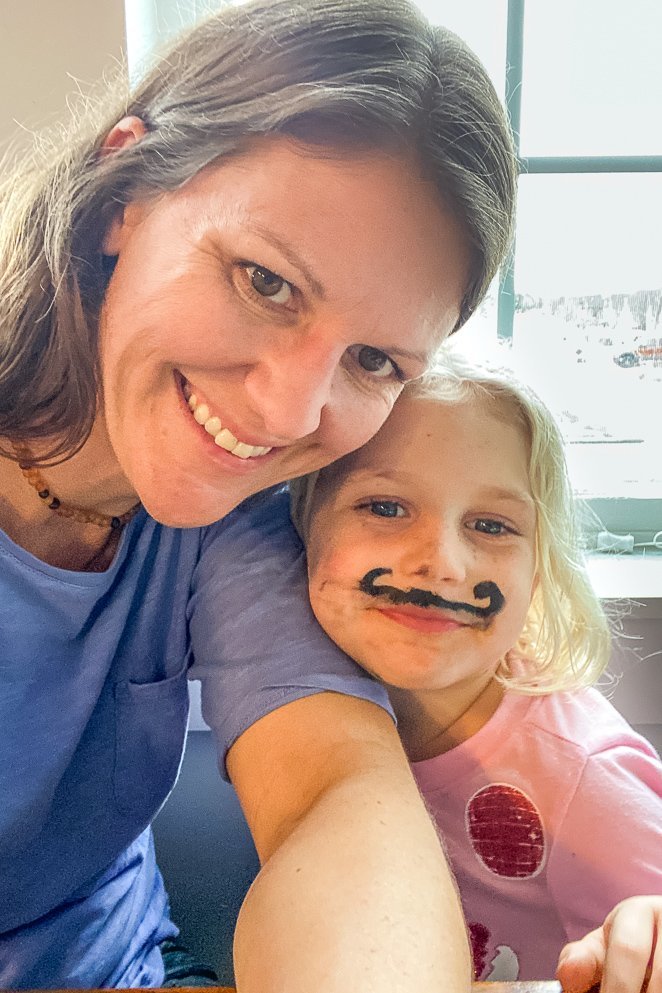
If all else fails, take a break.
Just take a real break from school and homeschooling, and know that they will be okay. Sometimes we all need a break before jumping into something new. Even a few weeks off might help everyone.
Please, if you have any additional resources that you’d recommend I add to this post, comment below. As always, if you’d like to talk further or you have other questions send me an email at [email protected].
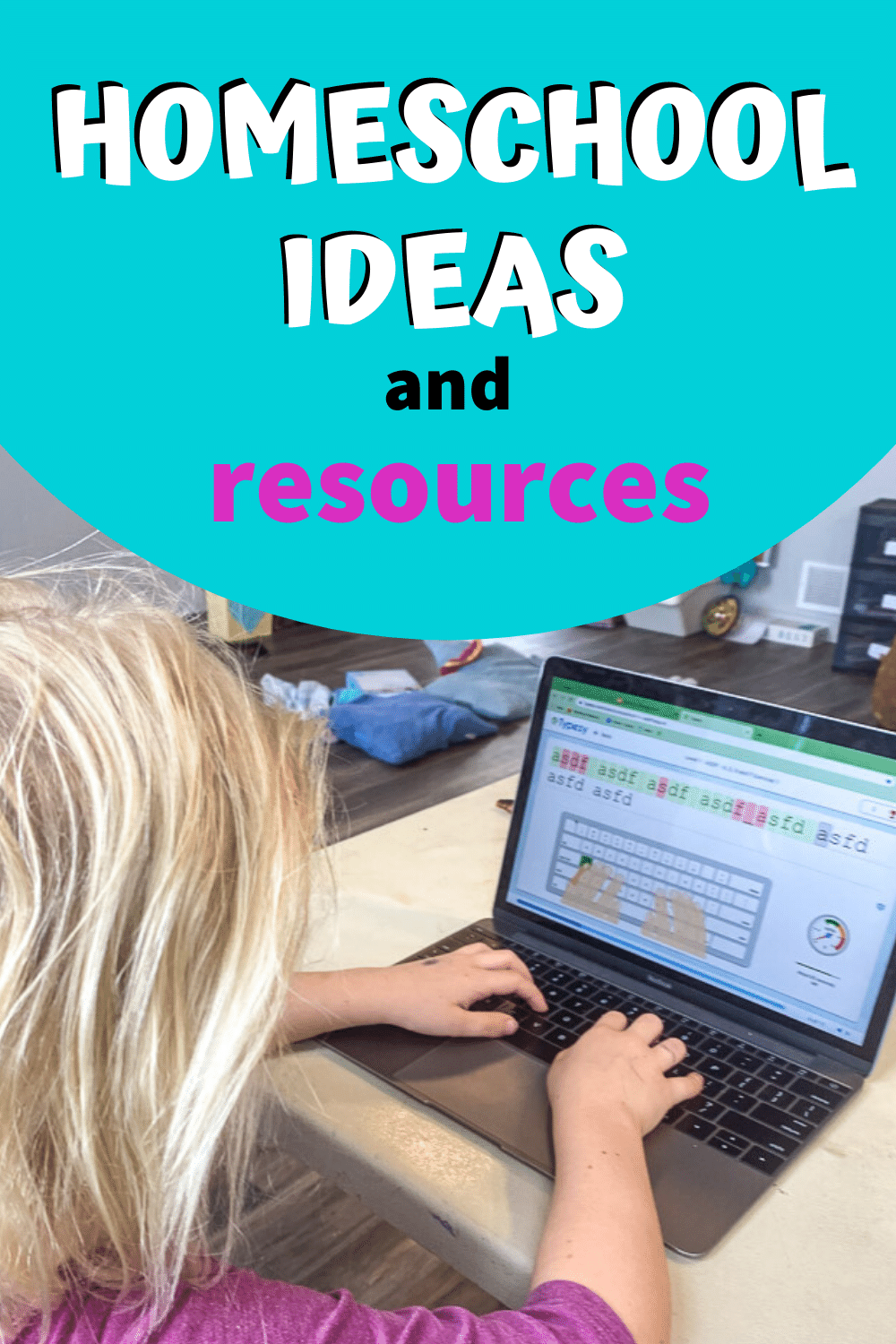
Homeschooling FAQ
Worldschooling is a form of homeschooling that involves taking learning beyond the four walls of home by travelling and exploring different cultures around the world.
Homeschooling is when a parent or guardians take the responsibility for educating their children at home, more like experiential learning rather than sending them to a traditional school. Distance learning is when a child learns from a not physically present teacher, such as through online classes or other virtual instruction.
It can be, there are many options where homeschooling uses online platforms for teaching and learning. However, they are not the same as these approaches can include different methods, materials, and resources.

